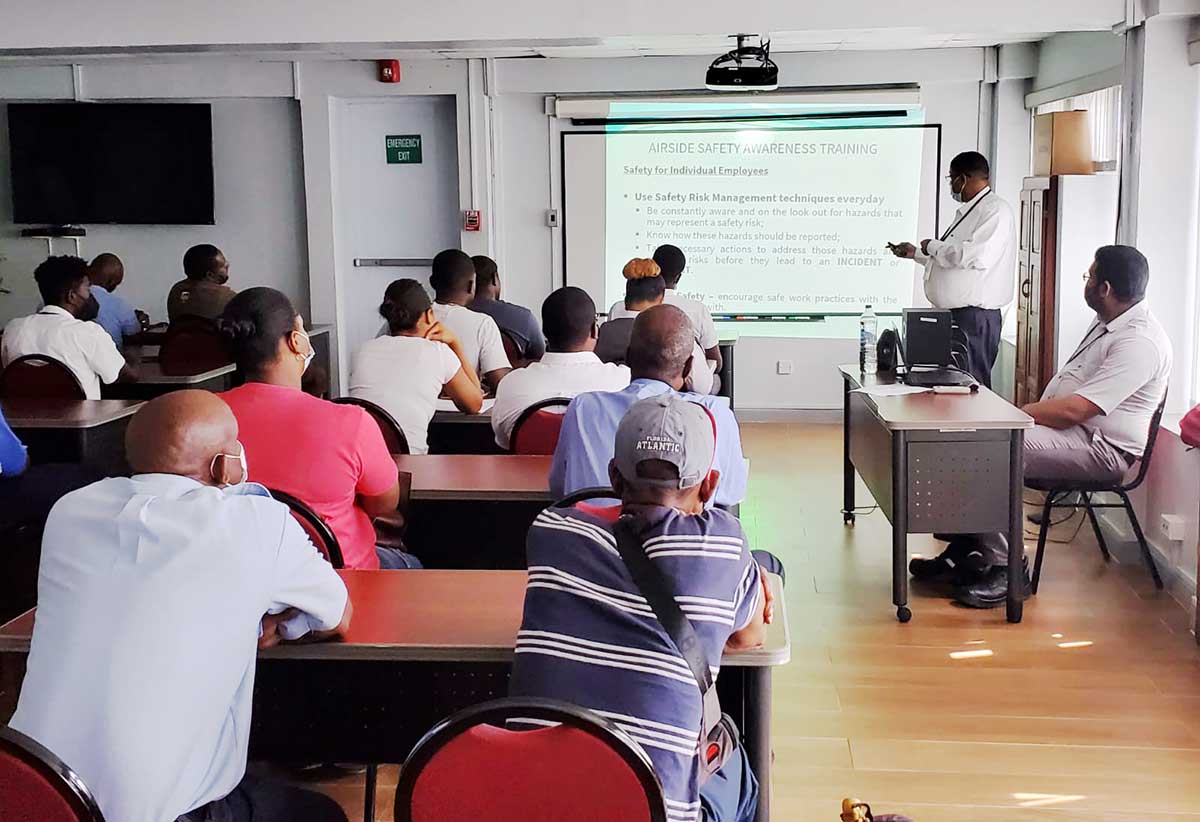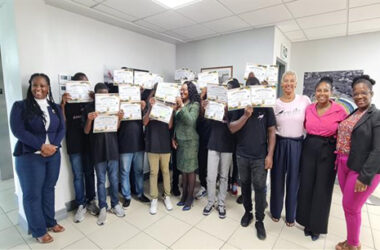
The Saint Lucia Air and Sea Ports Authority (SLASPA), through the Airport division, facilitated an Airside Safety and Foreign Object and Debris (FOD) Training for employees and representatives of the George FL Charles Airport community.
The Federal Aviation Administration defines Foreign Objects and Debris as any object, live or not, located in an inappropriate space within the airport environment. The International Civil Aviation Organization (ICAO) Annex 14 mandates that “the surface of pavements, runways, taxiways, aprons, and adjacent areas shall be kept clear of any loose stones or other objects that might cause damage to aircraft structures or engines or impair the operation of aircraft systems.”
Similar to the Airport’s biennial Simulation Exercise. ICAO recommends that airports facilitate Airside Safety and Foreign Object Training every two years to minimize, prevent and eliminate any form of a foreign object on the Airside.
Facilitators of the exercise Air Traffic Control Officer III and Executive Member of SLASPA’s Health and Safety Committee, Alvin Satney, and Wildlife Assistant Omar Auguste spoke to the relevance of the training. According to Mr. Satney, “airport safety and security are inextricably linked. As air traffic controllers, though our eyes are on the skies, we must be alert to the activity on the ground. In the vicinity of aircraft, foreign object debris can potentially cause challenges to the aircraft.”
“This training was timely, having faced numerous debris incidents on the apron,” expressed Mr. Auguste. He further stated that “the training served as a sensitization tool to raise awareness of the potential hazards to people and equipment, as well as the costs associated with FODs.”
SLASPA remains committed to the fulfillment of its fundamental responsibility, to provide the safest and most secure facilities possible for its employees, stakeholders and customers. Therefore, the Authority continues to develop initiatives, new processes, systems, and policies to ensure the same. More specifically, the ongoing training of its staff to uphold its mandate.





